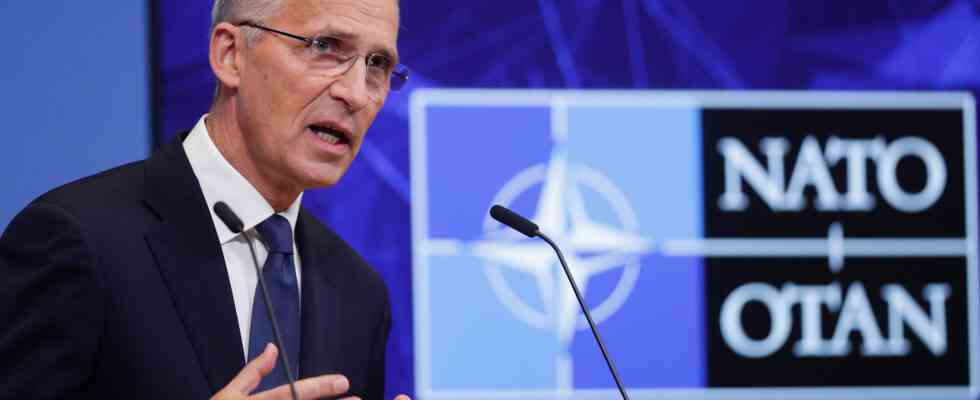As of: 09/30/2022 6:33 p.m
NATO Secretary General Stoltenberg condemns the “illegal” annexations by Russia. Ukraine will continue to be supported in self-defense. The US has already imposed new sanctions.
In his first statement after the Russian annexation of Ukrainian territory, NATO Secretary General Jens Stoltenberg condemned Russia’s actions. This is the second time that Russia has forcibly annexed part of Ukraine.
The regions of Luhansk, Donetsk, Zaporizhia and Cherson are Ukrainian, Stoltenberg emphasized at a press conference. All states are called upon to reject Russia’s blatant attempts to seize territory.
Stoltenberg urged the Russian President to end the war he was responsible for. Russia has clearly missed its military targets in Ukraine.
At the same time, Stoltenberg announced continued NATO support for Ukraine. The military alliance is not a party to the conflict, but is helping Ukraine to defend itself.
EU and NATO reactions to Russia’s annexations
Markus Preiß, ARD Brussels, daily news at 5:00 p.m., September 30, 2022
Biden announces new Russia sanctions
US President Joe Biden spoke of a violation of international law. Russia is stomping around on the UN charter – Russian President Vladimir Putin justified the annexations, among other things, with recourse to the right of peoples to self-determination. Biden called on all countries in the world to reject Russia’s “illegal attempts”.
At the same time, the US President announced new sanctions against individuals and companies that played a role in the annexation process.
EU calls “referendums” illegal
The European Union condemned the incorporation of Ukrainian territory into Russian territory. The government in Moscow is violating the “rules-based international order,” said the 27 EU member states.
The Russian government has violated Ukraine’s fundamental right to independence. The EU will never recognize the illegal referendums that Russia orchestrated “for this further violation of Ukraine’s independence”.
Clear words from Prague and Warsaw
Czech Prime Minister Petr Fiala, whose country holds the rotating EU presidency, wrote on Twitter: “Russia’s annexation of these territories is unacceptable and illegitimate.” These territories will continue to be considered part of Ukraine.
Czech Foreign Minister Jan Lipavsky made a similar statement. “The sinking Russian ship is trying to drag innocent people and areas of a sovereign state to the bottom,” criticized the Pirate Party politician. Putin can give as many speeches as he likes – the common theft of Ukrainian territories will never be acknowledged.
A “neo-imperialist vision” of Russia?
Pithy words also come from Italy. The prospective new Prime Minister Giorgia Meloni spoke of a step without “legal or political value”. Vladimir Putin is demonstrating “his Soviet-style neo-imperialist vision that threatens the security of the entire European continent.”
OSCE fears further escalation
Leading representatives of the Organization for Security and Cooperation in Europe (OSCE) also described the Russian actions as “illegal” and “unacceptable”. OSCE member Russia has “blatantly violated the basic rules of this organization and the United Nations,” said OSCE Secretary General Helga Schmid and Zbigniew Rau, the Polish Foreign Minister and this year’s OSCE Chair.
“This move by the Russian Federation, including mobilization and irresponsible nuclear threats, will only lead to an even greater escalation of the conflict,” the statement said, which was also endorsed by senior parliamentarians from OSCE countries.
And Beijing?
So far, however, there has been silence in Beijing. This could be due to the time – at the time of the Kremlin ceremony it was late Friday evening – or another indication of the Chinese government’s ambivalence.
In Beijing, the Russian war of aggression is assessed differently than in the West. In addition, the Russian government is now even more dependent on Beijing, which is perceived positively in China.

